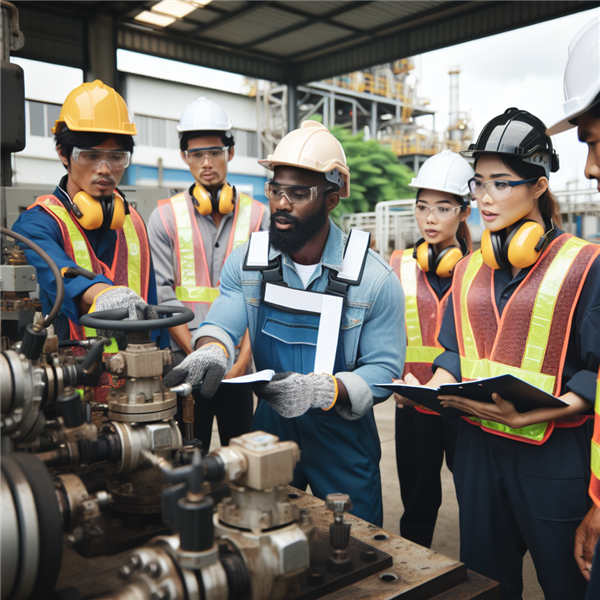Blog ContentThe
petroleum industry presents a unique set of risks to its workforce. From hazardous materials to high-pressure machinery, the potential for accidents is ever-present. However, with the right safety measures, the risk of accidents can be significantly reduced. This article will explore some of the safety measures that can prevent accidents in the petroleum industry.
Understanding the Risks
Before we delve into the measures, it is important to understand the risks associated with the petroleum industry. According to the Bureau of Labor Statistics, the oil and gas extraction industries reported an incidence rate of 1.2 fatal injuries per 100 full-time equivalent workers in 2018. This underscores the importance of safety measures in this industry.
1. Regular Safety Training
An essential safety measure in the petroleum industry is
regular safety training. Workers should be trained on how to handle the equipment, the correct procedures to follow, and what to do in case of an emergency. This training should be updated regularly to reflect any changes in the industry or the introduction of new equipment.
2. Proper Use of Personal Protective Equipment (PPE)
The use of
Personal Protective Equipment (PPE) is crucial in the petroleum industry. This includes helmets, safety glasses, gloves, and boots. PPE can protect workers from a variety of hazards, including chemical exposure, burns, and falling objects.
3. Regular Equipment Inspections
Regular inspections of equipment can help identify potential problems before they cause an accident. All equipment should be inspected before use and any defects should be reported immediately.
4. Emergency Response Plans
Having a comprehensive emergency response plan in place is a critical safety measure. This plan should include evacuation procedures, communication protocols, and first aid procedures.
5. Promoting a Safety Culture
Promoting a safety culture involves creating an environment where safety is a top priority. Management should lead by example and encourage workers to report any safety concerns.
Conclusion
While the petroleum industry presents numerous risks, these can be mitigated with the right safety measures. By investing in regular safety training, using PPE, conducting regular inspections, having an emergency response plan, and promoting a safety culture, accidents can be significantly reduced.
Enhance Your Safety Skills with Koenig Solutions
At
Koenig Solutions, a leading IT training company, we offer a comprehensive
petroleum worker accident injury prevention course to help you enhance your safety skills. Join us today to safeguard your workplace.












